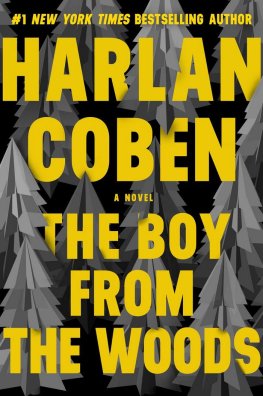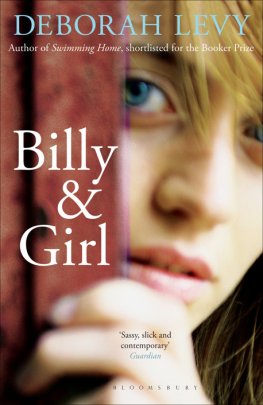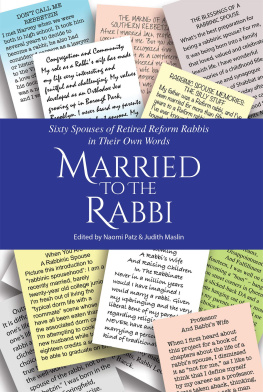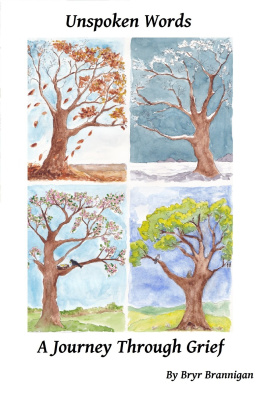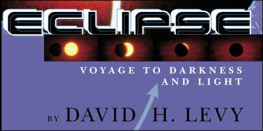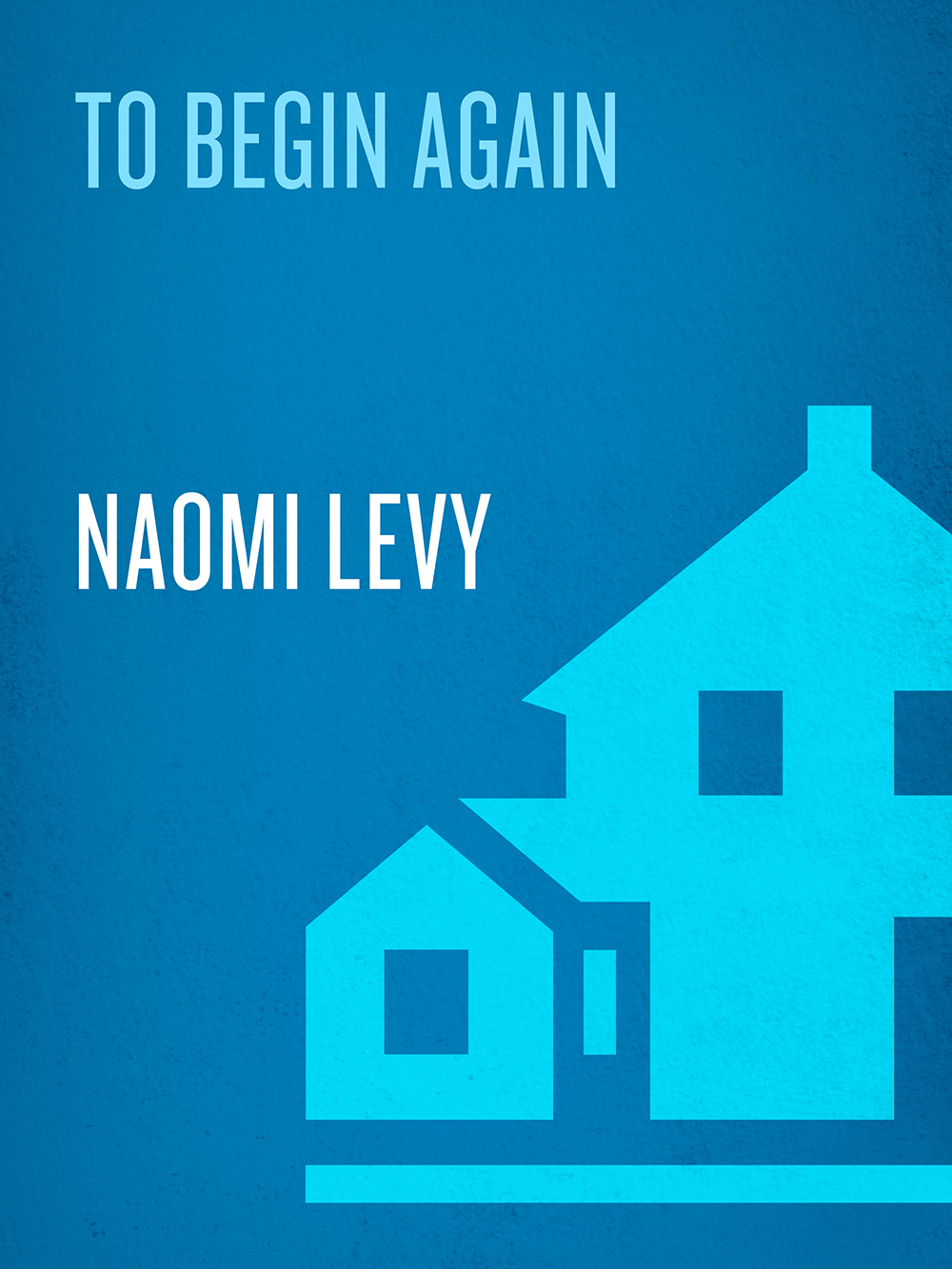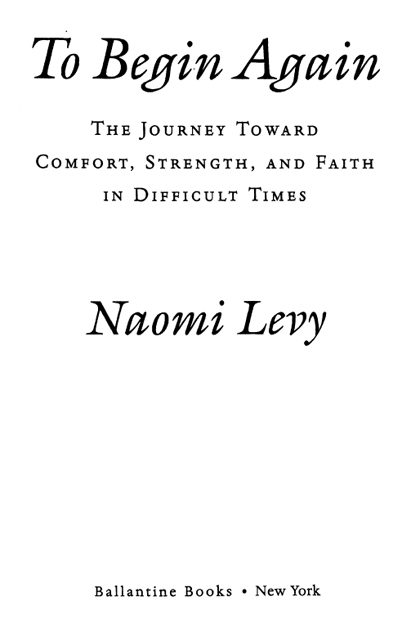A TREATISE ON HOW GOD AND FAITH CAN HELP PEOPLE RECOVER FROM THE WORST OF TIMES.
The Boston Globe
In her luminous book, To Begin Again, Rabbi Levy suggests that when we face loss, Why did this happen? is a less useful question than How do I go on? Her wisdom and tenderness help us to find our own answers and to remember the spiritual strength and healing that is possible for us all.
RACHEL NAOMI REMEN, M.D.
Author of Kitchen Table Wisdom
In this excellent resource for coping with loss, Rabbi Levy draws from her experience as a fifteen-year-old whose father was murdered, to offer comfortas well as the assurance that as bleak as life seems in the midst of tragedy, the darkness eventually lifts.
Self magazine
To Begin Again is a book of comfort and faith to lead us through tragic times. Her advice is wise, gentle, and compassionate, dotted with stories of people Levy knows who have endured terrible painand healed. She teaches us to get comfort by asking others for help, letting ourselves cry, seeking a community of faith, studying something new, and keeping memories alive. She shows us how to rebuild our lives by facing the truth, loving and forgiving ourselves, repairing relationships with loved ones, teaching our hearts to remain open, holding onto our faith, and finally, transforming ourselves.
www.amazon.com
Levy helps readers navigate lifes rocky shores with compassion, understanding, and excellent advice. [Her] ability to find strength, even beauty, in lifes sufferings will provide genuine support for many readers. Unlike other self-help authors who profess to have solutions for every problem, Levy recognizes that for some of lifes events, there are no answers, only questions. The real wisdom in her counsel comes from helping others to live with those unanswered questions.
Booklist
Levy offers much constructive wisdom. She constructs a map for personal renewal. Her deep experience and knack for colorful storytelling bring to life a somber subject.
Publishers Weekly
In the Bible, God promises, I am the Lord, your healer. In this wise and compassionate book, God has found an able partner in this act of healing.
The God Squad
Rabbi Marc Gellman and Msgr. Thomas Hartman
A Ballantine Book
Published by The Random House Publishing Group
Copyright 1998 by Naomi Levy
All rights reserved.
Published in the United States by Ballantine Books, an imprint of The Random House Publishing Group, a division of Random House, Inc, New York, and simultaneously in Canada by Random House of Canada Limited, Toronto
Ballantine and colophon are registered trademarks of Random House, Inc.
Grateful acknowledgment is made to the following for permission to reprint previously published material.
The Jewish Publication Society: Prayer by Rabbi Nahman of Bratslav, translated by Rabbi Shamai Kanter, from The Third Jewish Catalog: Creating Community, compiled and edited by Sharon Strassfeld and Michael Strassfeld, copyright 1980 by Sharon Strassfeld and Michael Strassfeld Excerpts from Isaiah, Jeremiah, Job, and The Song of Songs from Tanakh, The Holy Scriptures, copyright 1985 by The Jewish Publication Society Reprinted by permission of The Jewish Publication Society.
The Rabbinical Assembly Excerpts from Psalm 116 from Siddur Sim Shalom (p 385), edited by Rabbi Jules Harlow, copyright 1985 by The Rabbinical Assembly. Reprinted by permission of The Rabbinical Assembly
www.ballantinebooks.com
Library of Congress Catalog Card Number. 9990620
eISBN: 978-0-307-76512-3
This edition published by arrangement with Alfred A Knopf, Inc.
v3.1_r1
C ONTENTS
P ART O NE
Pain and Its Aftermath
Every one of us has suffered a hurt that has robbed us of something much larger than the actual hurt itself. Just as a solitary pebble can cause an entire pond to ripple, a single painful experience can have far-reaching effects on our lives.

C HAPTER O NE
Resurrection
Push! I cried. Push! Push! Push!
Michelle held her breath and her face turned deep red. The babys heartbeat was slowing. A nurse shoved me aside and fastened an oxygen mask around Michelles face. Push! I insisted.
Whos she? the nurse asked, looking in my direction. Shes our rabbi, Michelles husband Paul responded. The nurse thought he was kidding and laughed.
The doctor raced in and, without explaining why, ordered the nurses to quickly roll Michelles bed from the birthing room to the operating room. Paul and I threw on sterile blue gowns, masks, and caps. I kept cheering Push! over and over again. My heart was racing. Something in the doctors expression made me worry. Was the baby in danger? Was Michelle in danger? The fetal monitor beeped, the IV bag dripped, and the blood pressure cuff hissed, but to my absolute amazement, not a sound escaped from Michelles lips. During the breaks between contractions, I recited prayers for a safe delivery and the health of the baby. Paul held his wifes hand, his grip conveying a loving calm.
One more push, then a miracle: the babys head began to crown.
A few more minutes of excruciating pain, which Michelle endured in silence, and the baby pressed its way through the birth canal. Soon the raspy cry of a beautiful baby boy filled the air. A new life breath, a sweet fragile soul entered this universe.
As she held her child swaddled and safe, Michelle looked up at me. I almost lost my life, she whispered. I know, I responded. But neither one of us was thinking about the danger she had just come through. We were remembering another time.
I T WAS the day after Yom Kippur and I was emotionally and physically drained. It had been a grueling two months of preparation for the High Holy Days, but now they were over. I was relaxing in my study, still reeling from the previous evening. The service had been the most moving of my life. I had never felt such holiness in the sanctuary. The entire congregation had fused into a single voice of prayer. As I was reflecting on the experience, my intercom beeped. Theres someone here to see you, Rabbi, my assistant said.
I walked to the front door of the synagogue, still in a reverential daze, and there stood a woman with two black eyes hidden behind her dark sunglasses, a broken nose, bruises everywhere. I held Michelles arm and led her to my study. She could barely walk. I was mortified. I had seen her just the week before at Sabbath services. Now, as she sat in my study, I could hardly believe this was the same person. Not knowing how to begin, I waited for her to speak, but she refused to look my way. She stared at the floor, and when she finally raised her face, she looked out beyond me as if I werent there sitting before her.
She broke the silence with one word: Why?
I waited for more. And slowly she began to speak.
On the afternoon before Yom Kippur, Michelle had showered and dressed in her holiday clothes. She was on her way to a festive meal with her best friend. Afterward the two of them were going to come to synagogue to begin the daylong fast. She picked up her keys, locked the door to her apartment, and walked toward her car. Suddenly a man came up from behind and grabbed her. When she resisted, he punched her in the face, knocked her to the floor, and beat her. Then he picked Michelle up, opened the trunk of her car, threw her in, and slammed it shut. The engine started to roar, and soon the car was moving. It was pitch-black in that trunk and Michelle was terrified. Her entire body shook in fear. Where was he taking her? Was he planning to kill her? Would he dispose of her body in a place where she would never be found? All she could do in the blinding darkness was say to herself over and over again, I want to live! I want to live! The car stopped. The trunk opened, her eyes were assaulted by the stinging sunlight. He dragged her into the backseat. He raped her. And then he let her go.


